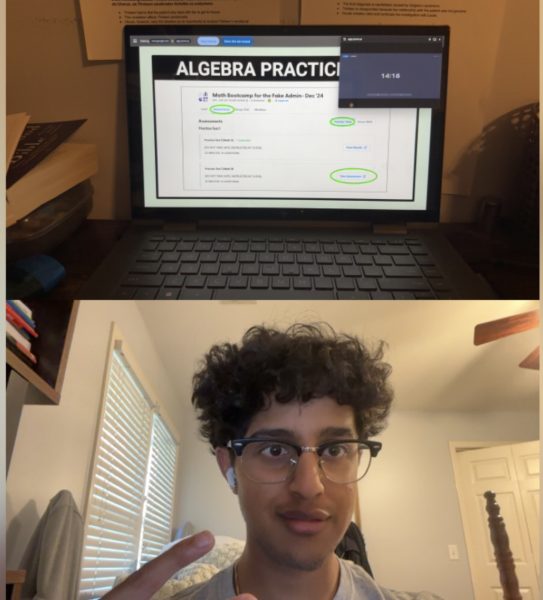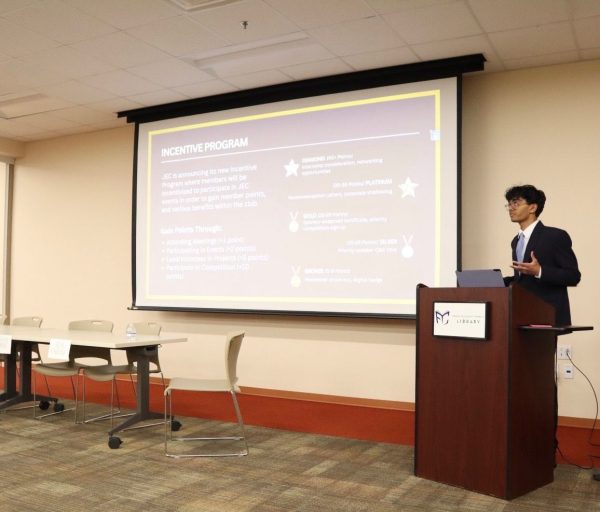McCarthy was a Mistake, the Next Speaker Should’ve Come From Outside the House

The complicated election for the speaker raised questions about the state of the house of representatives and whether Kevin McCarthy would truly be able to bring balance in this shaky climate. Photograph by Olivier Douliery/AFP/Getty Images, 2023.
The Constitution stipulates that Congress must elect a speaker of the House, a job whose purpose is to maintain order in the debate forum that is the House of Representatives.
But what many Americans may not know is that the Speaker of the House doesn’t necessarily have to be a sitting representative, a term used to denote someone elected to the House of Representatives. In fact, theoretically anyone could be elected to the position. While it might seem like this technicality exists due to oversight, some constitutional scholars argue that open guideline was intentional.
The Founding Fathers didn’t intend for this position to be a partisan one. Instead, it was designed to serve the whole House, meaning to be a position that channels the voice of all Americans in order to pass legislation that benefits them.
When the Constitutional Convention met in 1787 to form our nation’s government, the delegates elected George Washington to preside over the convention. Washington’s ability to lead debate and direct compromise made him the perfect choice. These same qualities were likely the guidelines when creating the role of the speaker at that same conference.
“I think the delegates knew that this was a position that required a certain ability to compromise,” Lambert junior Puraav Karnavat said. “George Washington didn’t represent a party, and that made him the perfect precedent.”
Despite this Founding Father’s attempts, this past month made it clear that this type of bipartisan leadership is impossible within Congress today. Though considering the current political climate in Washington, the best option would be to elect someone from outside the House.
One reason is the ideological divide within the Republican party. While Republicans won a House majority in the 2022 midterm elections, they couldn’t find unity among their radical and moderate members. The party was unable to elect a speaker or even find unity within their agenda. What started as a group of 19 Republican dissidents prevented Kevin McCarthy from being elected. But even as this number rose and fell with each round of voting, it became clear that just six holdouts could prevent the House from electing a speaker.
For the first time in over a century, Americans saw a Congress without a speaker. Without a presiding officer, the House of Representatives was unable to induct its new members, pass legislation or even decide upon the rules it had to follow.
When McCarthy finally won the speakership, he had to do so through a series of concessions that furthered the split within the Republican party and, as a result, the entire House. Kevin McCarthy is already unpopular among Democrats and is now losing members from his own party. In short, it’s become clear that the current political climate in our Congress is ripe to cause similar delays and uncertainty when it comes to future House procedures.
It’s because of this situation that it’s time to consider a new solution that serves the American people. The people need someone outside of Congress.
We need a leader who isn’t a player in party division and can be a moderate leader between the various factions in the House. Currently, McCarthy is almost held hostage by his party dissidents and is vehemently opposed by those outside his party. Democrats should have motioned to elect a respected Republican from outside of the House, one who could work with the opposition to pass legislation even without the support of Republican dissidents.
It might not be the best-case scenario for Democrats, but it’s arguably better than the situation they find themselves in now. At the least, it’s more aligned with the original vision of the Constitution.
This concept, though unprecedented, has received traction in the past. In 2019, votes went to Georgia gubernatorial candidate Stacey Abrams and then-formed vice president Joe Biden. It’s time to take this idea from something that floats around to each election to a serious proposal.
Though Kevin McCarthy is now the Speaker of the House, he used a motion to vacate, which allows representatives to vote in order to remove the speaker from their position. In theory, a small group of Republicans and the Democrats in the House could use a simple majority to vacate the position. The recent vote showed that said group of Republicans isn’t afraid to use this motion.
If McCarthy is removed and the speakership is empty again, it’s essential that the new speaker is someone from outside the House. Viable candidates could be anyone from Ben Carson, the relatively moderate republican who was the former Secretary of Housing and Urban Development, to Fred Upton, a representative from Michigan who is respected across the aisle and was one of the few Republicans who voted to impeach former president Trump.
Right now, the House of Representatives is in a precarious balance. If that balance falls and Kevin McCarthy is ousted from the speakership, then it’s imperative to bring in someone from the outside. A plethora of great candidates and a divided Republican party make this option the obvious choice to prevent congressional mayhem.
Your donation will help support The Lambert Post, Lambert High Schools student-run newspaper! Your contribution will allow us to purchase equipment and cover website hosting costs.











